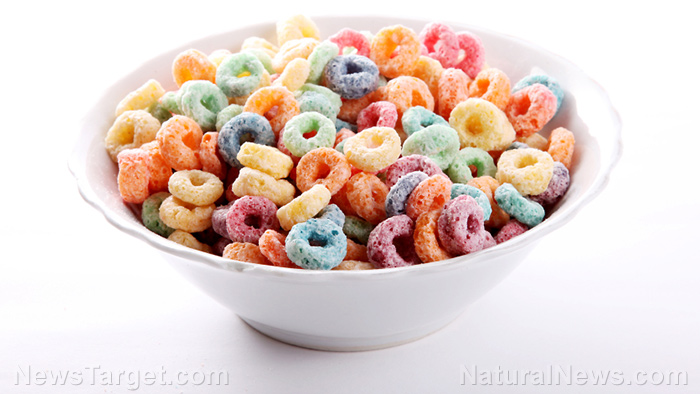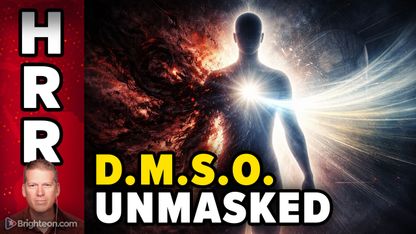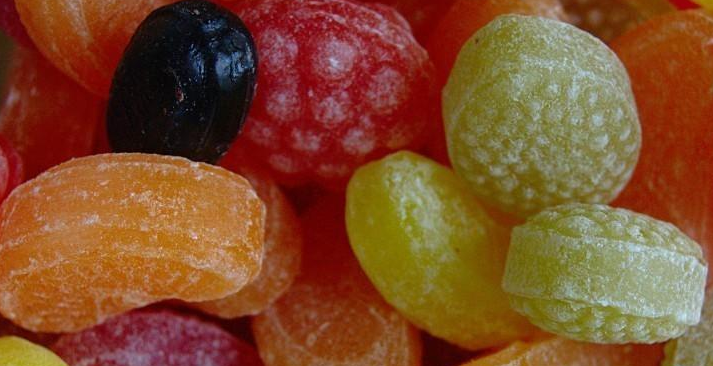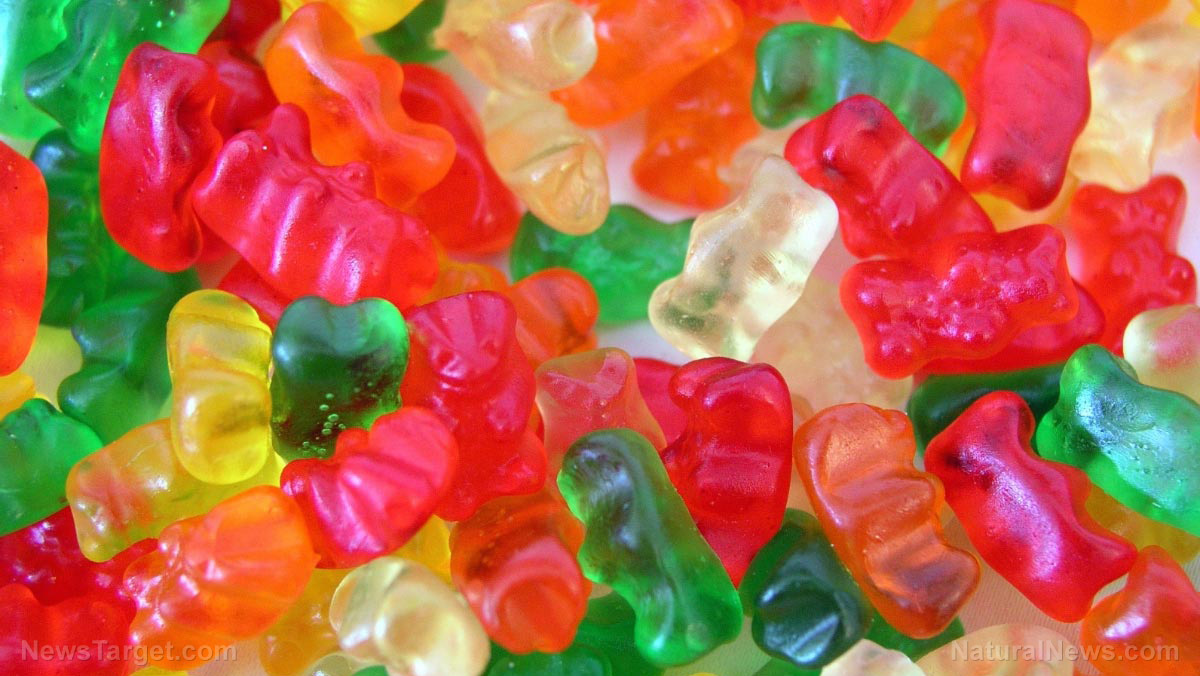
Here is a short list of food additives found in almost every type of American food – banned in Europe but legal in the United States.
Artificial colors
There are nine certified color additives approved by the Food and Drug Administration for use in the United States, among them Blue No. 1, Blue No. 2, Red No. 40, Yellow No. 5 and Yellow No. 6, used to enhance the appearance of beverages, cereals, crackers, dessert powders, sauces, snack foods and many other products.
The consuming public is largely unaware that artificial food dyes are made from petroleum and have been banned in many countries. The Center for Science in the Public Interest (CSPI) released a report that says artificial food dyes pose a "rainbow of risks" – including everything from allergies to cancer, and consumption of artificial dyes has increased five-fold since 1955.
Red-40 (E129), also known as Allura Red, is banned throughout Australia, Switzerland, the United Kingdom and most of Europe. It is one of the most commonly used artificial food dyes in the U.S., found in beverages, candies, cheeses, meats and many other goods.
A study published in the journal Frontiers in Microbiology found that high consumption of Allura Red causes adverse effects on human health, including allergies, asthma, attention deficit hyperactivity disorder (ADHD), brain damage, cancer, cardiac disease, food intolerance, multiple sclerosis and nausea due to reaction to aromatic azo compounds.
Blue-1 and 2 (also known as Brilliant Blue FCF) are banned in France, Germany and Switzerland but are often found in U.S. cereals and ice cream. A study published in the Pakistan Journal of Pharmaceutical Sciences reported that Brilliant Blue can have cytotoxic and genotoxic effects and advised that caution must be exercised when using these food additives.
Yellow-5 and 6 (also known as Sunset Yellow FCF) are banned in Finland and Norway, but are still widely used in the U.S. Studies on Yellow No. 5 have shown that they induce generic damage. Yellow No. 6 has also been banned in Norway and is being phased out by the European Union. It is still being used in the U.S., even though this additive has been associated with negative side effects, like allergies, hyperactivity, runny nose and tumors in animals.
Azodicarbonamide (ADA)
Azodicarbonamide is banned in Australia, the European Union and the United Kingdom. In the U.S. it is used as a whitening agent in cereal flour and as a dough conditioner in baking, but it is also used in making flooring and yoga mats.
The “Concise International Chemical Assessment Document,” published under the joint sponsorship of the United Nations Environment Program, the International Labor Organization and the World Health Organization, revealed that azodicarbonamide is of low acute toxicity, but repeated or prolonged contact may cause asthma and skin sensitization and advised that physicians involved in worker health surveillance programs should be aware of the potential of azodicarbonamide as a human asthmagen.
WHO.int -
Olestra
Olestra is used in the U.S. as a fat substitute made from sucrose and vegetable oil – adding no calories, cholesterol or fat to food products because it is neither digested nor absorbed and is commonly found in savory foods, such as potato chips and other high-fat foods to reduce the amount of fat content.
Olestra has been banned in Canada and the U.K. because it has been found to decrease the body’s ability to absorb essential fat-soluble vitamins A, D, E and K and carotenoids.
A study published in the journal Alimentary Pharmacology & Therapeutics found that the occurrence of gastrointestinal symptoms, including abdominal cramping, "anal leakage," diarrhea, gas and loose stools, after consumption of olestra under ordinary snacking conditions – comparable to that following consumption of triglyceride-containing snacks.
Potassium bromate
Potassium bromate is banned in Canada, China and the European Union. It is used in the United States to strengthen the baking dough and to allow higher rising.
It is a category 2B carcinogen that is classified by the International Agency for Research on Cancer (IARC). Studies, including one published in the journal Research in Pharmaceutical Sciences have linked potassium bromide to cancer, gastrointestinal illness, kidney disease and thyroid complications.
Recombinant bovine growth hormones (rBGHs)
The use of rBGHs is banned in more than 30 countries – Australia, Canada, Japan, New Zealand and almost all nations of the European Union (EU).
The use of recombinant bovine somatotropin (rBST) in dairy cows – a synthetic growth hormone used to increase milk production – has never been approved in the EU and was banned in 1999 due to concerns on animal health and welfare, food safety and quality and human health implications by potentially increasing the risk of breast, colon and prostate cancer, says the American Cancer Society.
Major U.S. food brands have different ingredients in other countries
Interestingly, some U.S. companies like Mars and McDonald’s continue to use dyes for their products sold in the States, while distributing cleaner and safer food to their consumers in Europe. (Related: Food safety hypocrisy is in your face.)
Since Europe is much more strict over the ingredients in food than the U.S., it is no surprise that some of the products are different – depending on where you buy them. While M&Ms in the U.S. are made using artificial colors, they are still sold in Europe where there’s a ban or warnings against those additives – but only because the batches across the pond are made using natural colors instead, said Firman.
Watch the following video to learn about U.S. food additives banned in Europe.
This video is from the PureTrauma357 channel on Brighteon.com.
More related news:
Mainstream media agrees that food safety bill will do nothing to improve food safety.
GRAIN report exposes the fraud of 'food safety' legislation.
Sources:
Please contact us for more information.























